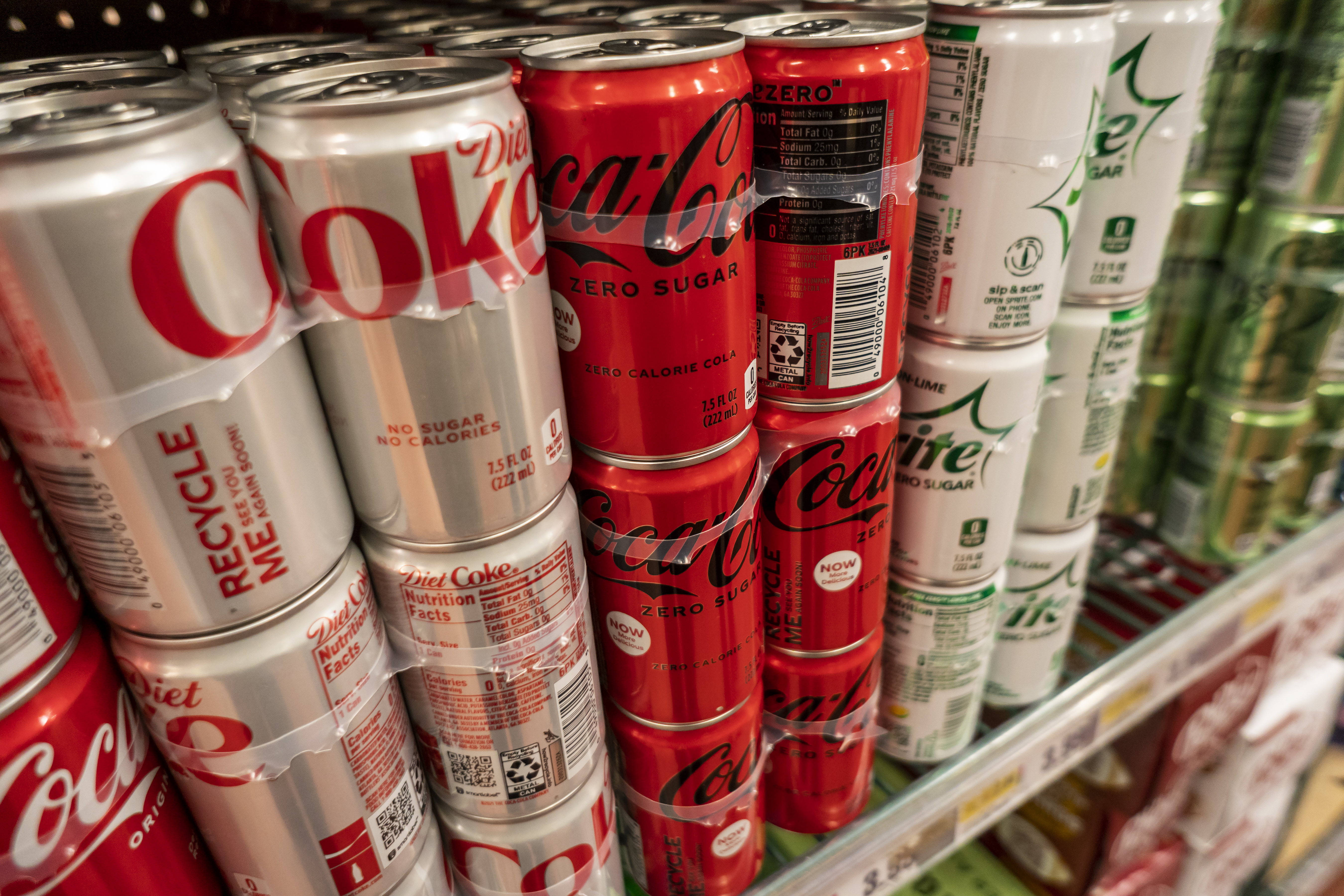By: nabeela khan
July 17 2023
Don’t ditch the Diet Coke just yet: Aspartame is safe in limited amounts

Source: Reuters/Richard B. Levine
A report by Reuters, published on June 29, 2023, stated that the World Health Organization’s (WHO) cancer research arm International Agency for Research on Cancer (IARC) is set to declare artificial sweetener aspartame as “possibly carcinogenic to humans.” An increasingly popular choice, the news created a sense of fear worldwide.
But two weeks later, WHO released the risk assessment results and said, “The assessments of aspartame have indicated that, while safety is not a major concern at the doses which are commonly used, potential effects have been described that need to be investigated by more and better studies.”
The risk assessment agency, Joint Expert Committee on Food Additives (JECFA), also reaffirmed that the daily acceptable intake is 40 mg/kg body weight. The press release noted that the two regulatory bodies conducted independent but complementary studies to assess the “potential carcinogenic hazard and other health risks associated with aspartame consumption.” It also added that it was the first time IARC evaluated aspartame and the third time for JECFA.
Let’s first understand what these two bodies do.
What is IARC and what do the guidelines say?
IARC is an independent international cancer research institute and a specialized cancer research agency of WHO. It evaluates evidence on the causes of cancer but does not make health recommendations.
For example, in June 2016, IARC downgraded their original classification of coffee from Group 2B (possibly carcinogenic to humans) to Group 3 (not classifiable as to carcinogenicity). This was based on reviewing more than 1,000 studies.
IARC isn’t a food safety agency, and listing any substance as a possible carcinogen doesn’t mean it may cause cancer – it investigates possible causes of cancer and identifies hazards. According to IARC, “The classification does not indicate what level of risk exists to people’s health associated with exposure to a classified hazard.” IARC classifies tobacco smoking as carcinogenic to humans, but that does not indicate increasing risk for each cigarette.
Simply put – IARC assesses the possible threat of a substance, not the risk associated with it.
The press release states, “IARC classified aspartame as possibly carcinogenic to humans (Group 2B) based on limited evidence for cancer in humans.”
Source: IARC website
If not IARC, who does the risk assessment?
JECFA, administered jointly by the Food and Agriculture Organization of the United Nations (FAO) and WHO, evaluates the safety of food additives, contaminants, and naturally occurring toxicants.
JECFA performs the task of providing reliable and independent advice and risk assessment of chemicals in food globally.
Once IARC declares a substance carcinogenic or possibly carcinogenic, the JECFA updates its risk assessment and releases guidelines on the recommended daily intake of the substance in question. In the case of aspartame, JECFA concluded that “the data evaluated indicated no sufficient reason to change the previously established acceptable daily intake (ADI) of 0–40 mg/kg body weight for aspartame.”
“JECFA also considered the evidence on cancer risk, in animal and human studies, and concluded that the evidence of an association between aspartame consumption and cancer in humans is not convincing,” said Dr. Moez Sanaa, WHO’s Head of the Standards and Scientific Advice on Food and Nutrition Unit.
What does the scientific community say about aspartame?
Last week aspartame was classified into Group 2B, defined as “limited evidence in humans and less than sufficient evidence in animals.” It shares this category with aloe vera leaves, Asian pickled vegetables, and gasoline.
Dr. Nandita Iyer, a doctor specializing in nutrition, wrote on Instagram that Group 2B (probably carcinogenic to humans) is in the same category as mobile phone radiation and pickled vegetables. “Someone needs to drink over 12 cans of diet cola a day to exceed the permissible limit to make aspartame a possible carcinogen,” Iyer posted.
Food scientist Gunter Kuhnle from U.K.’s Reading University said, “I don’t think that there is any evidence to support this [argument] – the data we have so far suggest that for aspartame, 40 mg per kg body weight per day is safe.”
Some studies have previously studied the safe levels of consumption of artificial sweeteners, some have raised concerns, while others have highlighted that “the health effects of low-calorie/artificial sweeteners are inconclusive, with research showing mixed findings.” Since aspartame is 200 times sweeter than sugar, it is used in smaller amounts to achieve the same level of sweetness as sugar.
Furthermore, it is important to note that “carcinogens do not cause cancer at all times, under all circumstances,” according to the American Cancer Society. It cites an example of how sunlight is a major source of ultraviolet rays known to cause skin cancer, but it’s advisable not to altogether avoid sun exposure.
“The main risk is that people worry too much, and some might panic. It could also lead people to increase sugar intake which can affect health,” according to Kunhle. He said that the discussion about the safety of aspartame dates back to when it was introduced, there is nothing new and it is reemerging. “Another issue could be the loss of trust in scientific advisory bodies; that in turn would mean bigger problems when dealing with public health issues.”


